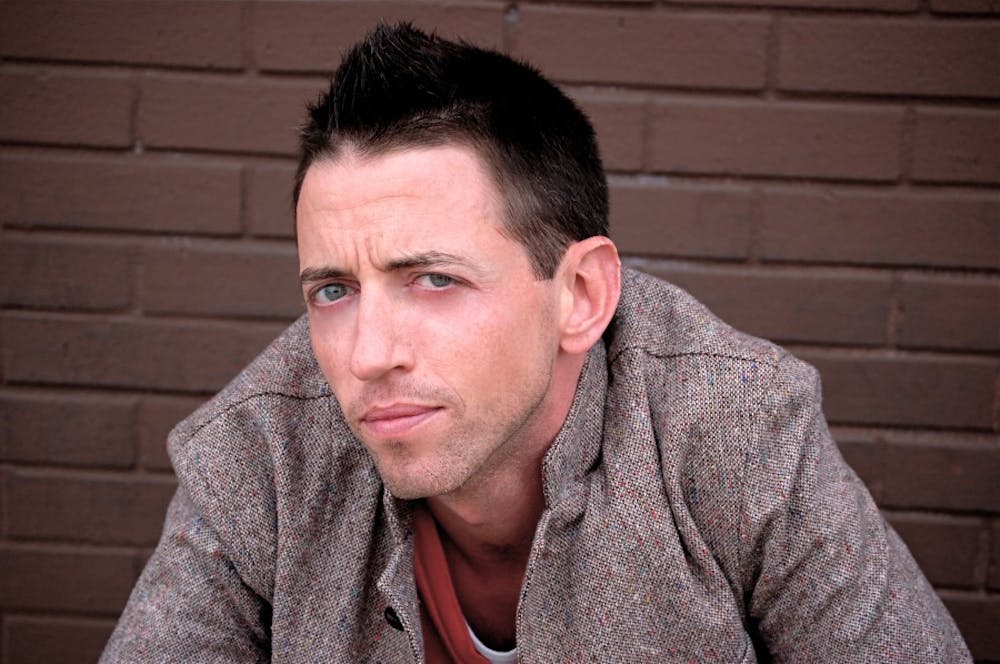As co-creator co-writer, and co-director of “The Chappelle’s Show”, Neal Brennan was nominated for three Primetime Emmys and created one of the most popular shows in the history of Comedy Central. Brennan’s credits also include brief stints writing for the Nickelodeon shows “All That” and “Keenan and Kel,” directing the movie “The Goods” and working behind the scenes on numerous movies and shows.
Recently, Brennan directed episodes for “The Mindy Project,” “The New Girl” and “Inside Amy Schumer,” and has moved into the spotlight himself as a stand-up comedian.
Sean Meehan: Your new Comedy Central special is called “Women and Black Dudes.” And you are neither of those, so where does that title come from?
Neil Brennan: I am not, but for whatever reason that seems to be the two groups that I notice the most things about. The things that I write most of my jokes about. Amy Schumer named her special mostly sex stuff, which I just thought that was funny, so I took a cue from that. I thought ‘what are my jokes about?’ It’s women and black dudes. It also sounds like the name of a blues record or something.
It’s uncanny how much of my act is about women and black people. It’s like Chappelle’s wife a long time ago said ‘all you guys talk about is girls and work,’ and in our case work would be black dudes. It’s still the same.
SM: On your podcast “The Champs” that you do with Moshe Kasher, you make a point to have a black guest in (almost) every episode, is that on purpose or something that you noticed as you went along?
NB: When you’re starting one of these it’s like how can we differentiate ourselves. There are a lot of podcasts in L.A. and they all just book the same people over and over again, and I happen to know a ton of black comics.
I also know a lot of famous black guys, and for better or worse, famous people get downloads. Thirdly, I’ve almost never had a boring conversation with a black guy and fourthly, white people like don’t have a lot of black friends, and they never get to hear white people and black people just talking. Just like normal conversations. For most people it’s always charged or small talk at work. And it’s like do you want to hear a white friend and a black friend talk? Here you go.
Basically, we’re changing lives is what I’m trying to say. We’re doing God’s work.
SM: You went to film school at NYU for a couple years, but ultimately left to do comedy. What was it about filmmaking or comedy writing that made you make that decision?
NB: I was working at comedy clubs seeing young comics like Jon Stewart, Ray Romano and Dave Chappelle. I thought ‘I like those guys better than film students, so I’ve got to figure out how to write.’ Comedy clubs are great because it’s very transparent in terms of writing. It was great for that.
It’s still the same exact mechanisms and I’m still part of a comedy club ecosystem. Just in the last three hours, I was just at a read-through of a movie that Amy Shumer wrote; I’m friends with her because of the comedy clubs in New York. Judd Apatow’s the producer and he started in comedy clubs. It comes down to them in a lot of ways. For a long time I was pitching people jokes, I didn’t do stand-up until six years ago. I would just hang out and I thought I should start doing this myself. Everything I have I owe to a comedy club, which is a little dramatic, but it’s like crazily true.
SM: Have you found any topics that audiences tend to reject?
NB: There’s no one thing. Like people say slavery is never funny, well we wrote a lot of funny sketches about that. There’s no hard-and-fast subject that’s not funny. There are subjects that people don’t want to hear from certain mouths. It’s hard for a white person to make a slavery joke. Having said that I did it, but I had to make it more abstract and turn it into a Chappelle sketch to make it more palatable to people.
You have to get better at figuring out how to preface things, you have to preface them in a certain way to get people to sign on. When I first wrote the slavery thing, it was just about how scared white people must’ve been on the last day of slavery and I tried it a couple times and an Asian guy got mad at me once – he booed – and someone suggested I just say it’s a rejected Chappelle’s Show skit, so it’s like Dave is in the set in a weird way.
SM: You’ve talked in other interviews about how comedians don’t like to mention that they have help, so what is it like so often being the help?
NB: You’re the help, but you never hear about it. There were so many people pitching ideas, no one is going to remember who said what, you just know that guy’s good or helpful, but you don’t remember. I’ve pitched people ideas and had them pitch them back to me a day later as their own. It’s almost just part of the job. Even with that in mind, objectively it’s unfair and must be aggravating, but it’s still great.
SM: You’ve been asked a lot about “The Chappelle’s Show” and specifically how it ended, do you feel at this point like we’re beating a dead horse?
NB: It is to me, it’s one of those things where it is dead, but the show has endured in terms of quality and appeal.
It doesn’t feel like that long ago; it was, but it doesn’t feel like it. You know how long ago it was? It was before YouTube, that’s how long ago the show was on. Which is probably part of the reason it’s still popular, as Dave always points out, he got to be really famous in a very potent way.
It’s a dead horse in that I don’t know if I have anything interesting to say about it at this point. It’s still a curiosity, still an interesting way for a show to end I’ll say that.
SM: It’s interesting with “The Chappelle’s Show” because on one hand there’s the weird ending that I imagine gets old talking about, but at the same time, it’s an incredible thing to say you created.
NB: Absolutely, it’s one of those things where I’d say it could be an albatross, but it really isn’t. People ask how long I’m going to use that credit and it’s like as long as people go ooh when they hear it! I don’t know, do you want me to say I directed the Jeremy Piven movie “The Goods”? People don’t seem to care about that, it doesn’t have the same impact.
People only do so many things in their careers that have that much impact. I’m still really proud of it and still really love the show. I think people want me to shit on Dave or gossip or something and it’s like eh, we’re cool, we’re friends. He just texted me today for coffee. All the people that want me to shit on him, they weren’t around before the show started and they’ll be gone any minute, me and Dave have been friends for a long time. That’s the thing that ends up being important. Whenever I’m thinking about working with friends I think I need friends, I don’t need work, which is something I didn’t always realize. Work was always first and foremost, but it turns out life is fairly short so maybe friendship is the thing.
The show was forged out of a friendship. There’s that old adage ‘don’t mix work with friends,’ I think that’s true for the most part, but in this case, it was excellent and ended combustibly because of the overall combustibility of the show.
SM: You spent most of your career writing short-form comedy, so was it hard to break into stand-up where you’re doing longer sets?
NB: With that stuff, I look to Chris Rock, he’s like an essayist. It’s almost like his act is in paragraphs. I try to look at it as a larger point to make. [Mike] Birbiglia did something on Netflix called “My Girlfriend’s Boyfriend.” It’s stand-up but it’s got like a narrative dramatic structure to it. It’s really funny and great because that makes it feel like more than a bunch of jokes strung together.
A friend of mine compared me to a southern lawyer in terms of my act. I like to prove or disprove things. On “Chappelle’s Show” we used to do the same thing: we would start with an observation and build the sketchup from the observation. A good example would be like white people love electric guitar – we’d have the observation and we’d talk about it and build something around it.
There’s ways to do it where the longer you do it the better you get at it. It’s never easy, it’s not like I’m just going to write an hour. It’s like trench warfare, you’ve got to fight for every f—king line.
Brennan will be at the Arlington Cinema and Drafthouse on Oct. 10, 11 and 12.
smeehan@theeagleonline.com





